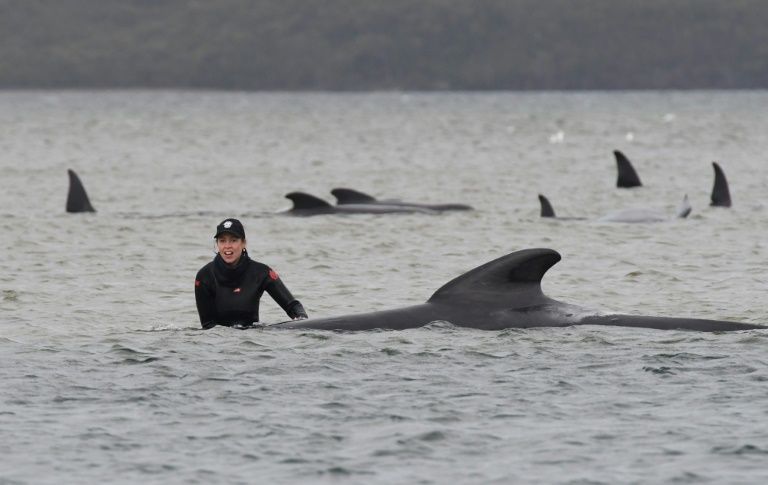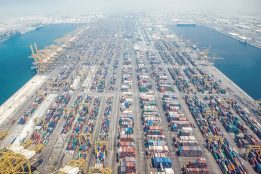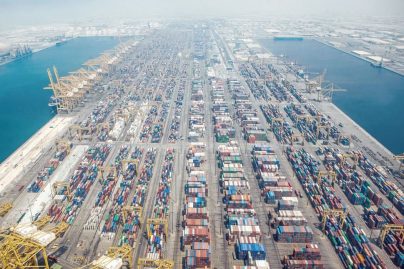‘Race against time’ as rescuers band to save 180 stranded whales at Australian harbour
Tue 22 Sep 2020
Rescuers faced a race against time to save nearly 200 whales stuck in a remote Australian harbour on Tuesday, hoping to prevent the toll of 90 dead from rising further after managing to free “a small number” of the stranded mammals.
Scientists said two large pods of long-finned pilot whales became stuck on sandbars in Macquarie Harbour, on Tasmania’s rugged and sparsely populated west coast.
Images from the scene showed a shallow body of water, thick with scores of the large slick-black mammals manoeuvring for space.
About 60 people — including volunteers and local fish-farm workers — are involved in the rescue attempt and could be seen wading in the water to reach the whales to re-float them into deeper passages.
Government marine biologist Kris Carlyon said “about a third” of the 270 animals were dead by late Monday, and that rescuing survivors would be a “challenging” task likely to take several days.
But there were hopes Tuesday that early rescue efforts were already paying off, according to the official leading the operation.
“We have now freed a small number successfully that appear to have stayed out at sea, and are now scaling up that approach,” Parks and Wildlife Service manager Nic Deka said.
Though mass whale strandings occur relatively often in Tasmania, such a large group has not been seen in the area for more than a decade.
The animals are only accessible by boat, limiting the number of rescuers who can reach them.
They are battling chilly and rainy conditions as well as the harbour’s unusual tides, which are dictated by barometric pressure.
“In terms of mass whale strandings in Tasmania, this is up there with the trickiest,” Carlyon told reporters in the nearby town of Strahan.
However, Carlyon said many of the partially submerged whales should be able to survive for the several days it would take his team to complete the task, in part due to the inclement weather.
“It’s pretty ugly for people on the ground but as far as the whales go its ideal — it’s keeping them wet, it’s keeping them cool,” he said.
Scientists said it was unclear what caused the latest stranding, but Carlyon suggested the pod may have gone off track after feeding close to the shoreline or by following one or two whales that strayed.
Karen Stockin, an expert in marine mammals at New Zealand’s Massey University, said Tasmania was a “particular hotspot” for pilot whale strandings in large pods.
She also claimed that while pilot whales were typically more resilient than other whale species, rescuers did face a race against the clock, because as the mammals overheat their muscles deteriorate and their organs become crushed outside their natural environment.
[Sourced from AFP]

 Apr 19 2024
Apr 19 2024













